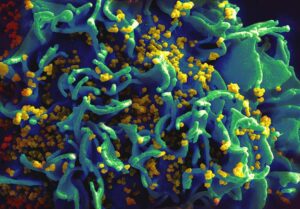Researchers randomly assigned participants to different groups, including one in which intermittent fasting was combined with a meal replacement diet; and another that involved taking either the diabetes drug metformin or empagliflozin without any changes to their usual eating habits.
In the diet-intervention group, participants did what’s known as 5:2 intermittent fasting, consuming a single replacement meal on two nonconsecutive fasting days per week and then swapping out dinner with a replacement meal on the other five days.
In addition, participants who did intermittent fasting experienced significantly greater average reductions in A1C levels. A1C dropped by 1.9 percentage points in the fasting group, compared with 1.6 percentage points with metformin and 1.5 percentage points with empagliflozin.
The Intermittent Fasting Group Experienced ‘Metabolic Benefits’
While intermittent fasting and meal replacement diets can both help accelerate weight loss, it’s the combination of these two approaches that most likely helped people with type 2 diabetes get better results than they could get with medications, says lead study author Lixin Guo, MD, of Beijing Hospital in China.
“The 5:2 intermittent fasting not only helps reduce weight and waist circumference but also brings metabolic benefits,” Dr. Guo says.
“Medical nutrition meal replacement packages specifically designed to support the 5:2 intermittent fasting pattern can aid in weight loss and blood sugar control while providing satiety, comprehensive nutritional supplementation, accelerated fat breakdown, inhibition of metabolic inflammation, prevention of muscle loss, and reduction of adverse events associated with weight loss.”
Cutting calories also helped. On the two fasting days, the replacement meals contained a total of just 500 calories for women and 600 calories for men. Participants were also encouraged to consume a low-calorie diet on the other five days, aided by a replacement meal for dinner.
All of the participants — including people taking the diabetes drugs instead of intermittent fasting — received nutritional counseling, exercise guidance, and education on managing diabetes.
The Study Was Small and Brief, Experts Point Out
One limitation of the study is that researchers asked participants to stop taking any diabetes medicines for just three months before the start of the experiment, making it possible that they still had some effects of the medicines in their bodies, according to the study.
Another drawback is the intermittent fasting intervention may have been too brief to get a clear picture of how it might compare with diabetes medications over the long haul, according to the study. The study also didn’t assess what happened after people stopped following the 16-week intermittent fasting program.
“In most weight loss interventions involving change in diet or medications, when stopped two-thirds of weight that was lost is regained at one year on average,” says Sun Kim, MD, an endocrinologist and associate professor at Stanford University School of Medicine in California who wasn’t involved in the new study.
Participants are most likely to regain weight and see their blood sugar creep up again if they didn’t make enough changes to their eating and exercise habits during the study period, says Vicky Pavlou, RDN, a registered dietician and researcher at the University of Illinois Chicago, who wasn’t involved in the new study.
“If participants go back to eating the same foods as before or eating the same quantities they can easily regain the weight and this would lead to blood sugar increasing,” Pavlou says. “This is the same with every diet.”











Post Comment